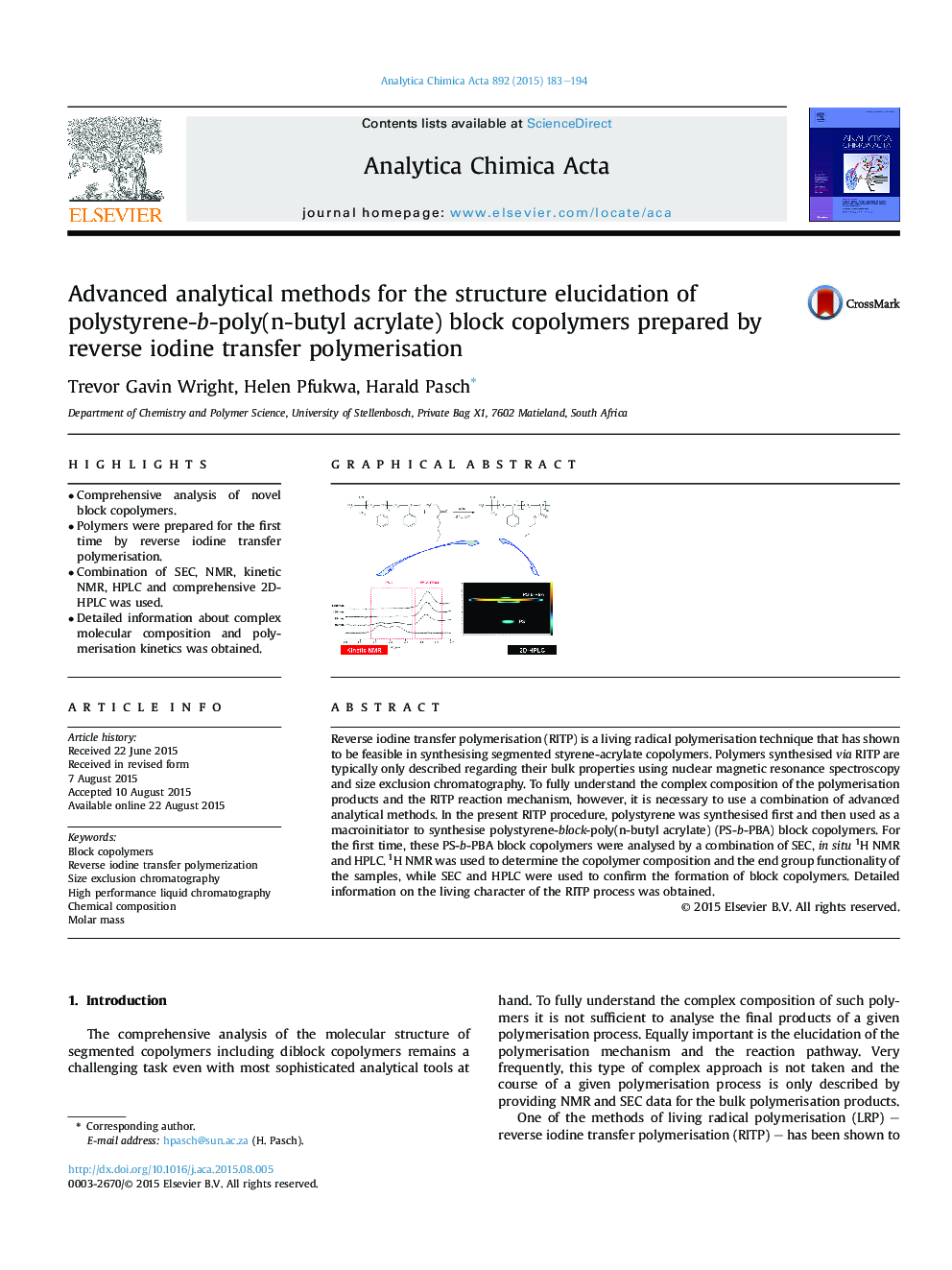| Article ID | Journal | Published Year | Pages | File Type |
|---|---|---|---|---|
| 1163437 | Analytica Chimica Acta | 2015 | 12 Pages |
•Comprehensive analysis of novel block copolymers.•Polymers were prepared for the first time by reverse iodine transfer polymerisation.•Combination of SEC, NMR, kinetic NMR, HPLC and comprehensive 2D-HPLC was used.•Detailed information about complex molecular composition and polymerisation kinetics was obtained.
Reverse iodine transfer polymerisation (RITP) is a living radical polymerisation technique that has shown to be feasible in synthesising segmented styrene-acrylate copolymers. Polymers synthesised via RITP are typically only described regarding their bulk properties using nuclear magnetic resonance spectroscopy and size exclusion chromatography. To fully understand the complex composition of the polymerisation products and the RITP reaction mechanism, however, it is necessary to use a combination of advanced analytical methods. In the present RITP procedure, polystyrene was synthesised first and then used as a macroinitiator to synthesise polystyrene-block-poly(n-butyl acrylate) (PS-b-PBA) block copolymers. For the first time, these PS-b-PBA block copolymers were analysed by a combination of SEC, in situ1H NMR and HPLC. 1H NMR was used to determine the copolymer composition and the end group functionality of the samples, while SEC and HPLC were used to confirm the formation of block copolymers. Detailed information on the living character of the RITP process was obtained.
Graphical abstractFigure optionsDownload full-size imageDownload as PowerPoint slide
